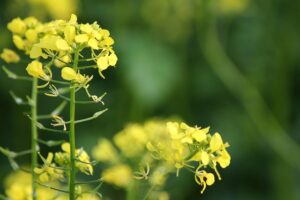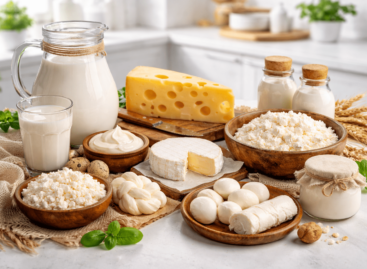Viable seeds are created by MATE’s mustard plants planted in the lunar soil
For the first time in the world, it was possible to obtain viable eeds from mustard plants grown in lunar soil at the Hungarian University of Agriculture and Life Sciences (MATE), the institution announced to MTI on Thursday.

(Photo: Pixabay)
As recalled in the announcement, NASA published an international recommendation – taking into account several parameters – which plants are likely to be suitable to survive in soil with the same structure and grain size as the soil of the Moon, including on the Moon. Plants must meet several conditions, such as low water requirements, higher-than-average oxygen production, edibility, and the ability to bind volatile organic compounds in their environment.
The MATE experts have successfully demonstrated that mustard stands out the most from the list of recommended plants
Encouraging results were obtained that the mustard seed successfully germinated and grew even with minimal water addition in the lunar soil. “It can be said that it is a huge discovery that, in contrast to previous hydroponic plant cultivation, it was possible to grow plants in soil, and even in lunar soil, with the help of a few drops of water. We have now reached the point where the seeds do not need too much help to germinate. Minimal water can also be produced by breaking down existing minerals, for example, copper sulfate, which when heated releases water,” quoted György Barkó, senior scientific associate leading the team the announcement. The MATE researchers also highlighted that plants definitely need a closed environment in order to develop successfully on the Moon, as the radiation would otherwise kill them. Therefore, researchers have to think in a cave or a tunnel dug into a mountain. In a special display case at the Technical Institute of MATE, the experts tried to create the conditions of such a cave in terms of lighting and the amount of added water, except for the pressure difference.
The goal of the researchers was not only to sprout and keep the plants alive, but also to make the process sustainable, that is, to make more seeds grow from the plants
Plants grown under artificial conditions also produced three seeds. So far, only the Technical Institute of MATE has seeds grown under similar conditions, so the research is also unique at the world level – they emphasized in the announcement, adding that the seeds are currently being analyzed and examined at the HUN-REN Agricultural Research Center. “Further important questions need to be examined in relation to the three sprouted seeds. For example, whether they might absorb toxic heavy metals from the soil, and therefore whether they remain suitable for human consumption,” emphasized György Barkó. Scientific test results are expected by the end of the year. Another important question that concerns researchers is whether any changes occur to the seeds after they are sent into space, for example, whether they remain viable even after the journey. In February of next year, György Barkó and his team plan to send mustard seeds into space using a Falcon 9 rocket, and then return them to Earth after completing an orbital path.
In the experiment, the researchers examine the acceleration of the launch and the effect of the radiation acting on the nuclei during the journey
This is important because it makes it clear to the experts whether they can be suitable for a trip to the Moon lasting a few days. We will receive the answers approximately around April next year, in the event that the journey goes smoothly and part of the payload – which includes the seeds – returns to Earth safely, the statement said.
MTI
Related news
János Lázár: rural development is needed, not agricultural policy
🎧 Hallgasd a cikket: Lejátszás Szünet Folytatás Leállítás Nyelv: Auto…
Read more >Related news
GDP growth in OECD member countries slowed to 0.3 percent in the last quarter of last year
🎧 Hallgasd a cikket: Lejátszás Szünet Folytatás Leállítás Nyelv: Auto…
Read more >Change in Rossmann Hungary’s leadership: Kornél Németh decided to move towards new challenges in 2026
🎧 Hallgasd a cikket: Lejátszás Szünet Folytatás Leállítás Nyelv: Auto…
Read more >







